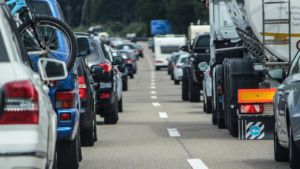News
Cold weather compounds urban air pollution
This article is more than 7 years old.
Falling temperatures act as a lid preventing fumes to escape

Only fewer petrol and diesel cars will solve the problem (photo: Pixabay)
With thermometers dipping down to nearly -10 degrees last night, some parts of Denmark saw the coldest temperatures measured in the country since February last year.
And while the freezing temperatures are often accompanied by sunshine, something we all miss in Denmark, there’s a more sinister side to things as well.
During cold spells the air pollution caused by traffic has a more difficult time dissipating into the atmosphere and it tends to get stuck nearer the ground.
“During winter we see what is called an ‘inversion layer’ – a phenomenon in which the cold acts as a lid on air pollution. It means the polluted air has a difficult time escaping the lower 100 metres and mixes with the rest of the air at higher altitudes,” Jørgen Brandt, a professor at the Department of Environmental Science at Aarhus University, told DR Nyheder.
READ MORE: Air pollution still a big killer in the capital region
No quick solution
The situation is particularly dire during morning rush hour, when the concentration of pollutants from sources, such as petrol and diesel engines, are especially high.
Aside from windy weather, which can provide relief for a while, there is nothing one can really do to combat the spike in pollution levels on cold days – except, of course, remove the source of the pollution.
“With more electric cars and fewer cars that emit large amounts of air pollution – such as old petrol engines – it will feel much better during winter,” said Brandt.










































